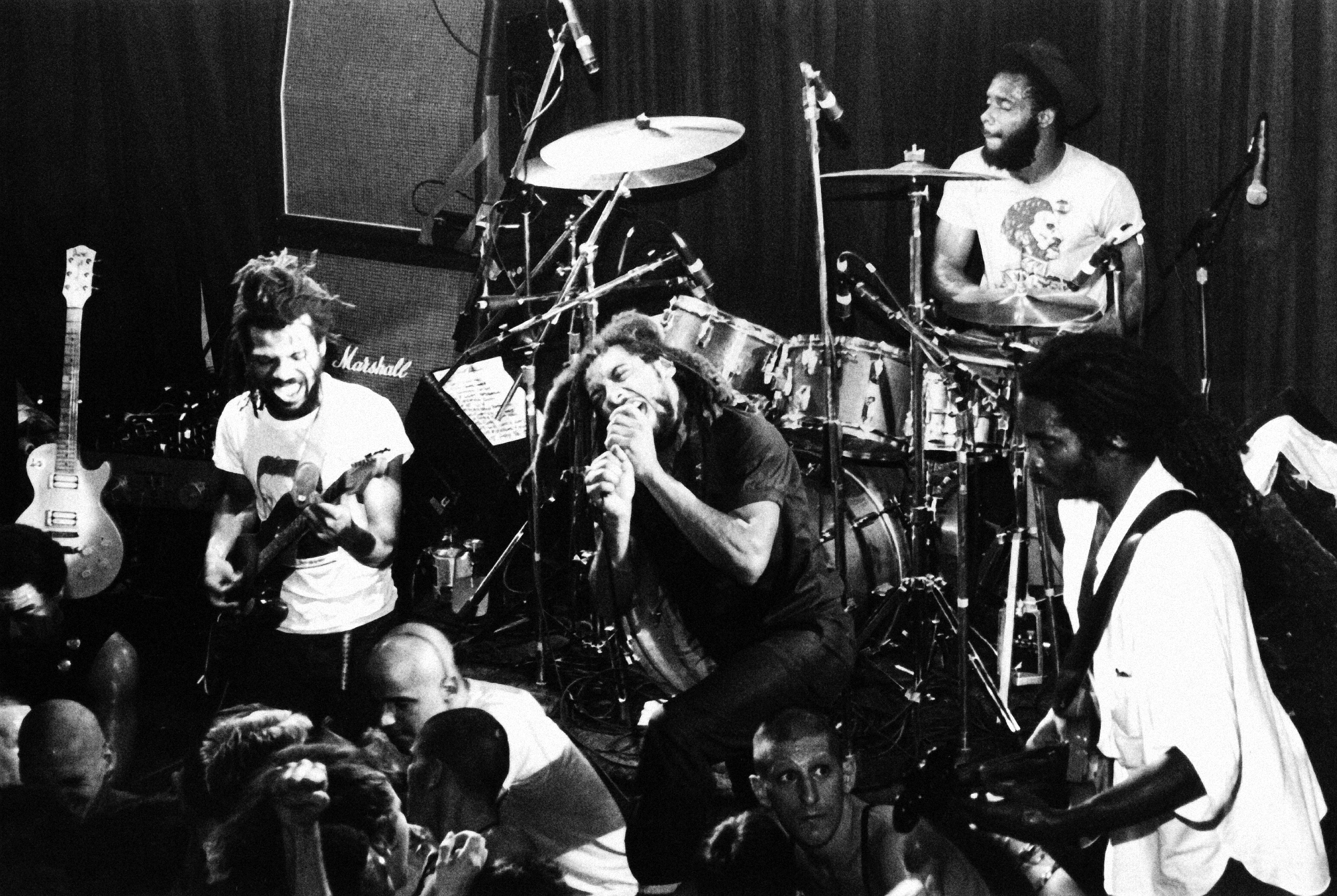
Whichever phase of music history is on the table for discussion, there will always be a number of bands or musicians whose names will be thrown into the ring as seminal, hugely influential or outright important. Most will deserve the accolades, many will not. Just as the likes of Hendrix, Bowie, the Stones and Zeppelin cannot be denied as rock pioneers, nor can punk and hardcore be ever discussed without the deifying of Bad Brains.
Their story is a long and tumultuous one, and as is only starting to be heard by the wider audience it deserves now, way too late for them as a band but not as legend. From their inception in Washington DC in the 70s through their infiltration of the NYC hardcore scene in the 80s, to the zenith of the 90s and subsequent downward spiral in the 00s, there was never a time when Bad Brains were able to be ignored. Yet, by the wider world, they were; within the ranks of the greatest punk icons in history, they were held upon the highest pedestal and still are regarded as true denizens of the genre.
Their energy in the early days cannot be resisted, the power and pure pace they played with like an unstoppable bulldozer with a supercharged V8 under the hood. Singer Paul Hudson aka HR (Human Rights) delivered lyrics with a powerful message with an even more powerful method. The musicianship of the band is not to be underestimated or dismissed, the tightness and technical ability of each member to be able to hold that precision at warp-speed was rarely imitated, never matched.
Their longevity as a hardcore force continued well into the 90s with some great albums like God of Love and Quickness, but the signs of impending unravelling were becoming evident. HR’s descent into schizophrenia and other mental health issues caused understandable consternation within the band, and no matter how hard they tried to keep it, and him, together, there really was no way the band could ever be anything other than a shadow of their former glory days. Other vocalists were enlisted for short stints (like Israel Joseph I on Rise), but HR would always be welcomed back to the fold, such is his importance to the band and its history. While the band always retained their perfect precision, HR’s frantic stage energy and rapid-fire vocals gradually abated as would be expected of an ageing man.

After a 10 year hiatus they re-formed for shows in the US and Europe in 2007; with their substantial legacy preceding them expectations were high, possibly unrealistically so. Increasingly bizarre behaviour from HR including wearing a motorcycle helmet and bulletproof vest on-stage were sure signs things were at an end, and their legacy became tainted in a way that should never have been allowed to happen. The documentary Bad Brains: A Band in DC is a warts and all look at their career and live comeback, sadly dominated by warts, and leaves the fan wishing that they’d left well enough alone.
The last few years have seen some highs and lows for the band and its members. Guitarist Dr Know (Gary Miller) suffered a heart attack and is fighting a long battle to regain his health. They have recently received a nomination to the Rock and Roll Hall of Fame, met with universal praise and approval by other hardcore icons. HR disappeared from public life altogether amid allegations of drug abuse and battling an ongoing neurological illness, yet has resurfaced with new musical projects and is the subject of a soon to be released authorised biography Finding Joseph I: An Oral History of H.R. from Bad Brains. A video documentary is also due out next month:
It’s never easy to see once revered figures lose their magic and lustre and almost become laughing stocks, yet HR has somehow managed to avoid it, barely. The fact that the other band members have continued to support him through the toughest of times, and the punk community, fans and larger music industry have rallied behind the band with their help for Dr Know and now the Hall of Fame nomination, speaks volumes about the impact Bad Brains had and will always have in the pantheons of modern music, of more than just the punk variety.



Leave a Reply